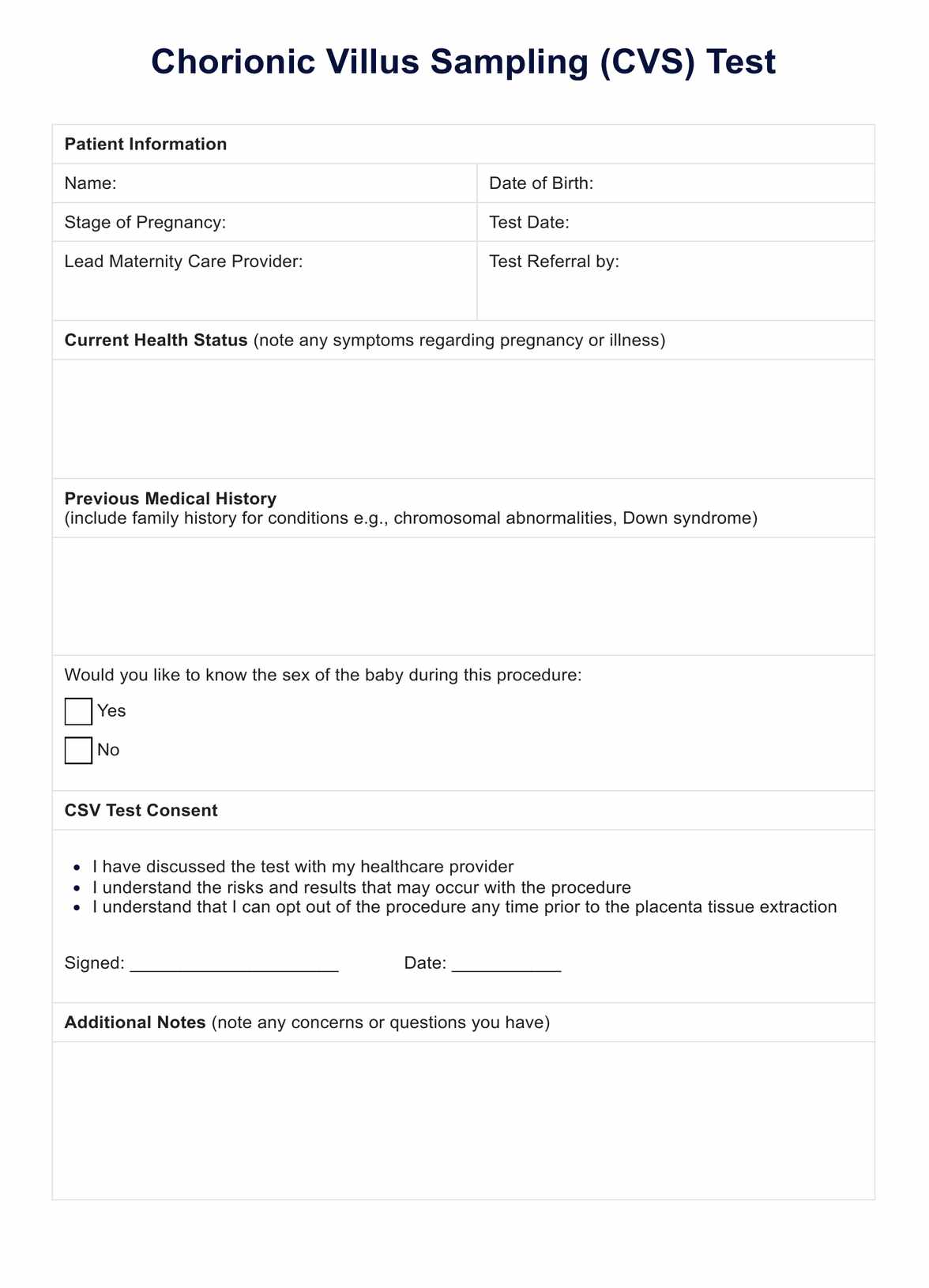CVS testing only detects congenital disabilities related to chromosomal abnormalities, such as Down syndrome and sickle cell disease. It does not test for other conditions like spina bifida, which require an amniocentesis test between 15 and 16 weeks of pregnancy.












